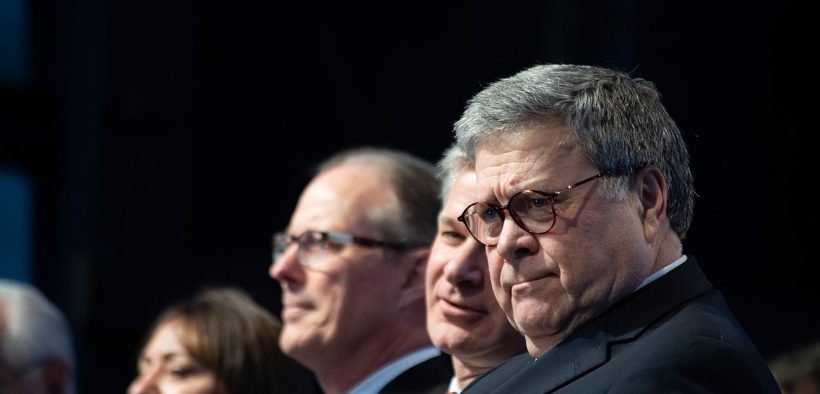Spectrum, Socialism, And The Road To 5G

There have been some interesting and unexpected developments in how the U.S. is planning to make 5G wireless technology a reality this week.
U.S. AG Advocates for Government Buying Tech Companies
Last Friday, U.S. Attorney General William Barr proposed that the U.S. government ”either directly or through a consortium of private American and allied companies” should consider buying a “controlling stake” in European tech companies Nokia and Ericsson. This suggestion comes in response to concerns over the position of Chinese company Huawei Technologies, one of the largest tech companies in the world.
Before his most recent stint as AG Barr was General Counsel for Verizon, and also served on the Board of Time Warner so his suggestions is likely coming from a place of understanding the marketplace. As AG Barr is also looped in on the national security component of the 5G race, which is probably also part of the reason for his suggesting such an out of the box response to Huawei’s dominance in the 5G marketplace. However, advocating for the government to take control of the means of producing 5G technology falls pretty solidly in the realm of socialism and is surprising coming from Trump appointed AG Barr.
The idea did not get much traction with the Trump White House. On February 7 Larry Kudlow an economic advisor to Trump, shut down at least half of Barr’s suggestion saying, “U.S. government is not in the business of buying companies, whether they’re domestic or foreign”, although in his view, “there’s nothing to prohibit American tech companies from acquiring” the companies that Barr had suggested. Vice President Mike Pence also responded to Barr’s idea by referencing Federal Communications Commission’s (FCC) recently announced plan to release more wireless spectrum.
Spectrum
Wireless spectrum is the radio waves that all wireless communications technology uses. Spectrum is controlled by the FCC and only certain portions of certain bandwidths are available for civilian communication and commercial use. In the past decade as exponentially more wireless devices, using more data have come online, and stayed online, there have been fears of “spectrum crunch” when available bandwidth runs out. Spectrum crunch has been talked about for several years and so far has not lead to widespread wireless communications failures, but there have been recent signs of problems.
In order to combat spectrum crunch and make way for even more devices using faster 5G technology the FCC announced on February 7 a plan to free up large amounts of spectrum. The plan involves incentive payments to cable companies that are currently using the bandwidth in order to get them to move. Estimates of the cost range from $3billion to over $9billion.
The 5G Race with China
Freeing up more spectrum will be an essential component of the U.S. successfully implementing 5G, and U.S. companies are emerging as leaders in some of the areas where 5G will be essential such as autonomous vehicles. However, the U.S. is already lagging behind China in getting the next generation to consumers. China launched 5G across the country on November 1 of last year. Getting to 5G first will have advantages for China but this race is not just a tech or even an economic issue, it’s also an issue for U.S. security.
One of the main concerns about Huawei’s growing prominence in global 5G has been their access to sensitive information and ability to assist Chinese government spying. In December of 2018 a top executive of Huawei was arrested in Canada at the U.S. government’s behest on suspicion of trade violations. Since then concerns have grown in the U.S. and elsewhere about Huawei’s role in 5G.
On February 10 France announced that they would not include Huawei in their spectrum auction for 5G. The Chinese embassy responded warning France not to “discriminate” against Huawei and implying that there could be reprisals for Nokia and Ericsson in China. It remains to be seen whether France will decide to include Huawei or not as they implement their own plans for 5G.
As Europe, the U.S., China, and the rest of the world make 5G a reality the faster speeds will continue to enable new developments and advancement, but the race for new technology has no real finish line, 6G is already right around the corner.











